![]() August 11, 2017 11:06
August 11, 2017 11:06
Deben estuary, Suffolk
I’m making a journey today – by nose. It’s unintentional - the best journeys often are, I find. Because, it’s not what I’m seeing on this walk from Woodbridge to Waldringfield that holds me, but what I sense on the air – atomised and attached to waking dream.
Smell is so powerfully linked to memory it’s a wonder it has a purpose in the present, at all. A whiff will waft us across space and time – in a heartbeat. Which is amazing. No wonder I keep losing my sandwiches.
Which has me searching for the map. Where am I? I’m approaching a strip of beach at Kyson Point – a wind-scoured slice of headland on the River Deben, about 8 miles from the sea – following a path that will skirt a shimmering mile of broad estuarine creek, and take me through woods and wheat fields, and down bushy sheltered lanes. But right now, I’m standing in a leaf-tunnel of hawthorn and willow, in the shade, where all the best smells live. But what do I detect that carries me so? I’m not sure. Everything?
Grass, brackish water, hot bracken. Worms, damp stone, dung and green. Cows, and beetle carcasses. Sun on bark. Chlorophyll. Sighing leaves and corpse. Meadow flowers, seaweed and hay – hint to stench, life to death; from giddying rush, to subtle sway.
But I’m not certain, any more, even that it’s me doing the smelling. Disembodied, I’ve stopped in my tracks. I am once more the boy who first sensed such things – all else is suspended. Could odour be linked to ancestral memory? Perhaps the people who walked this way a thousand years ago – to fell the trees to build the ships to bury their lords at Sutton Hoo – nosed the air as I do now, and thought of their own childhoods, throwing play-spears of bracken too?
Mark Tunnicliffe
Mark Tunnicliffe’s blog, ‘River Rat Diary’, can be found at http://marktunnicliffe.com/blog
Posted August 11, 2017 11:06
![]() July 5, 2017 08:50
July 5, 2017 08:50
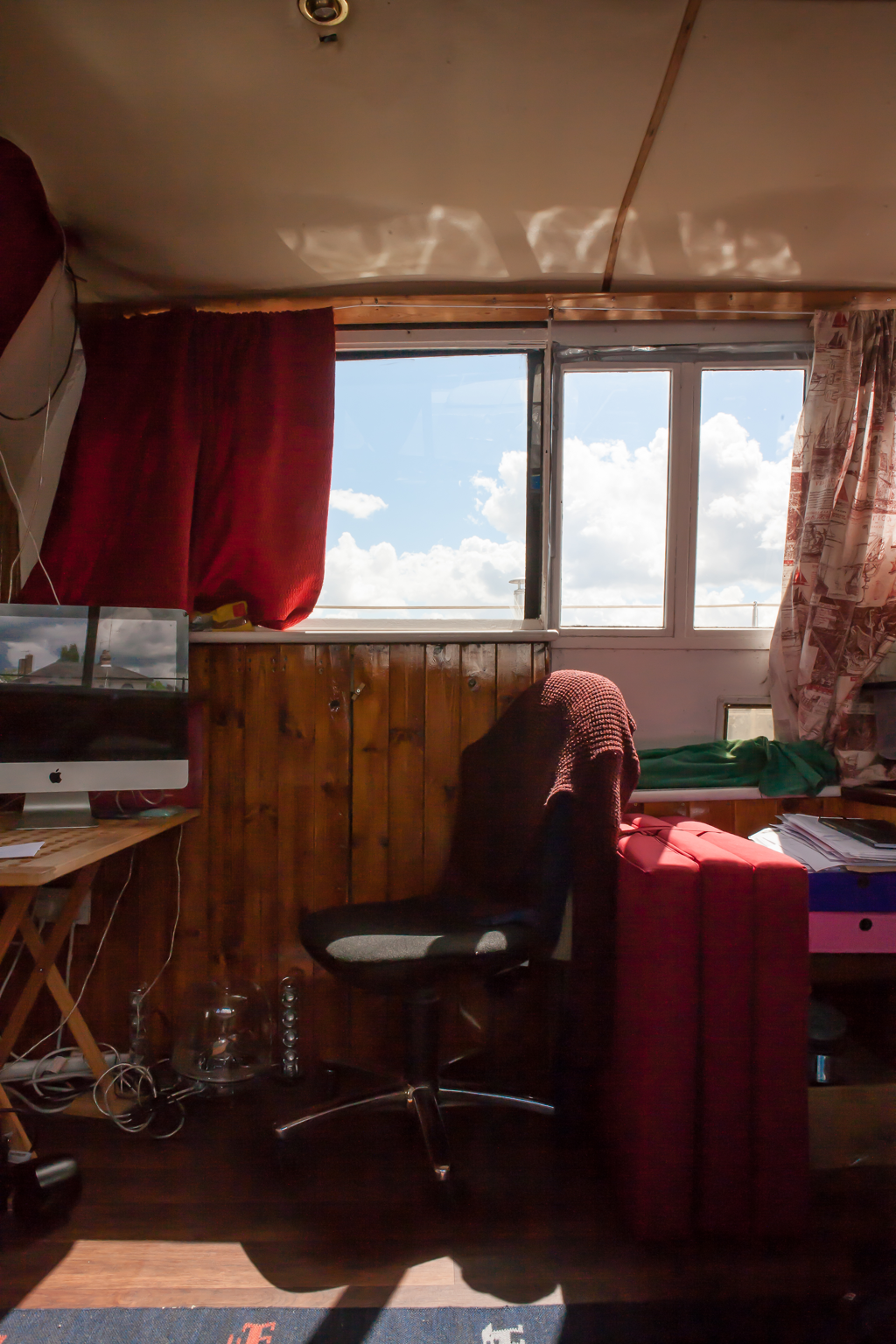
A Postcard from the Waiting Room - 5 July, 2017
Alone on the boat, held in light, I sit sunned, watching a parading sky. All roads led me here, it seems. And there is much time to wonder. Did I have a choice about where I came to be?
Life here has been renewed. First spring, then summer came to the estuary, the seasons in their arc casting swoons and swathes of green across the warm Suffolk countryside. The waters mellowed and the birds changed guard – sandpipers for swallows, African dust for cool, glutinous mud.. Where does winter go? I can't believe this is the same place that had me cowered in flint-hard January.
Because I rarely feel far from a hospital waiting room, I hover on the fringe of all this, unsure if I’m invited. I ache to run and swim and generally whoop it up, but instead remain somewhere at its edge, in spirit at least – a man with a lot on his mind, and a dialysis catheter under his shirt. It’s hard to forget. I do my best. Taking in great lung-fulls of life, I walk out each day and hoover up this place, exploring every sense – listening, smelling, touching the long grass, ineptly identifying trees (did you know there are over 300 species of willow? I can name two!), and saying hello to cows, like a five-year old, as I pass.
I wait for summer rain.
Medically, the rollercoaster continues. It’s been a surreal parallel track for my family since March, the ‘elsewhere’ in our lives; a long, vaguely linked procession of appointments and consultations, peppered with news bombshells, occasional (sometimes contradictory) feedback, spells of bloodletting and silence – for months the ride has been cranking up, stalling and jerking into life, by jolting turns. It’s been easy to fall into a battered gloom – as I did for most of May and June.
As potential donors, both my mum, Annie, and brother Paul finished their tests, having been bled, probed, held up to strong lights and generally assessed to the eyeballs. Then a few days ago, ending weeks of stressful double guessing, the Royal Free Hospital in Hampstead punted one scenario centre-stage, and laid one to rest. Paul, it transpires, has scored highest as a match, finally giving us a steer over whom, in the most intimate sense, should go to hospital with me. And mum, quelling her instincts to protect us both by donating, is to be spared an op, and left physically free to help us with our immediate recovery – a good 6 weeks to get past the hobbling and groaning, I imagine.
This won’t be easy for any of us, and I must say, I don’t feel very grown up about it. Our situation still seems crazy, and the whole thing (ideally) someone else’s business. Doesn't this story belong to a different (pluckier) person in the local paper? Discussing the operation, I find myself telling people sagely that ‘you need to break eggs to make an omelet’, while internally scanning for a way out.. Any way out at all, no matter how ignoble. Would swimming towards the sunset be acceptable?
We may be cooking that omelet in August.
Digesting the news about Paul, a stream of images went through my mind – a well-worn flicker book of memory and dream. We are kids, playing in the walled garden of the house in Maltraver’s Street, Arundel. It’s 1972, probably, and he’s crying. Why? Because I’ve just kicked him in the goolies. Now, we’re in the garden of Grove Cottages, Binstead. It’s 1978, and he’s crying – because I’ve done it again. What’s the matter with me? And what’s this? A food fight in Southfield Road, Oxford? I think it’s 1984. I’ve just poured a bag of self-raising flour over Paul’s head, and locked him in the larder. This is mutual rough-housing (I like to think), and they’re certainly not my only memories of our relationship – he was the constant companion of my childhood – but I’m sensing some sibling competition here; a certain amount of acting out. I should have known better, of course ( I was 20 in 1984). But it would take leaving home, and navigating a lot of difficult growing up (and falling apart, and reconfiguring, on my count) before I could fully appreciate my wise, funny and honourable little brother – or anyone else, for that matter.
Now, his sense of rightness is about to be made graphic. Though he’s younger than me, Paul’s act is in some ways tough to follow, and he’s about to do something I will never be able to fully thank him for. 'Sorry' got old long ago. I’ll try to express my feelings somehow.
I love you, Paul, as I did, incoherently, back then. These days I can put it better than hoofing you in the tackle.
.........................................................
I get a tough lesson in gratitude every time the hospital taxi picks me up. Good fortune is relative, after all. The journey to dialysis in Ipswich takes around half an hour, and I go three times a week for the four-hour evening session. Though thankful for the help, the late-night hanging around in deserted clinic waiting rooms – for up to an hour, post-treatment – makes me scream inside, and sometimes outside, and I have to work hard not to loathe every bush, dog, and half-timbered bungalow on the drive home.
But in a way, it’s my regular co-passengers that affect me most. Sharing my taxi are two other patients – Gary and Barry. Barry is in his late seventies, a retired builder, and he can barely walk. He also rarely speaks. As an older man, his life on dialysis will be brief. Gary is frail, younger, childishly sweet and softly spoken, and still works occasionally as a software programmer. His face is paper white and afflicted by a startling skin condition I can't identify (whatever it is, it isn't good), and he also has an appalling hole in his head, thanks to a tumour, now removed. Gary also has one good eye - the other a sightless marble of milk. Happy days! I’ve nicknamed him ‘Lucky’. No - actually I haven’t, but God knows, sharing this sharabang of laughs every other day I need a sense of humour. The first time I met Gary, I wanted to cry.
I opt for something else.
On the hazy, luminous Mid-Summer’s Eve just gone, awed and giddy like a recently released lifer, I cycled several miles up-river to the estuary village of Waldringfield, through long, leafy back-lane tunnels of Oak and Ash, past farmers fields and brackeny heath. The evening sun found the colour of egg yolk, and the smell of Cow Parsley, honey and grass hung heavy in the shade. It was a kind of heaven. And here I was. I was invited after all.
I savoured every last atom and smote, and consciously honoured my pact.
While I have a life, I will live it.
POSTSCRIPT - Operation scheduled for 23 August ......
Posted July 5, 2017 08:50
![]() April 17, 2017 08:14
April 17, 2017 08:14
Eclipsed by recent events, Waterland – the world beyond my boat – faded for a time, like a photograph bleaching in the sun. The early weeks of dialysis left me drained. No irony.
Decanting, filtering, and uploading my blood every other day oddly reconfigured my senses, I found; delivering a strangely disembodied state, as if I’d been transported, imperfectly, in particle form. ‘Beam me up Scotty’, I order the bleeping machine, whenever I recall a sense of humour.
Curls of plastic tubing pump liquid ruby. The contents of my heart. Beautiful; terrible. The hours seemed endless; someone else’s.
I began to deal with basic life business with a new kind of will. Living through the post-dialysis prism, it was all I could do to place one foot in front of the other, head down, and set my jaw to the day. This is what people do, I discover, first sensing the possibility of fading into the past.
But how, in such circumstances, is one supposed to feel?
I can’t help thinking, rather better than Dave, the 80-year old NHS volunteer driver giving me lifts to hospital on Tuesdays and Thursdays – twitchily, too fast, and fuelled now by something other than humanitarian impulse. Confusion? Anger? A raving sense of injustice? “FACK!!! SHIT!!!, he shouted without warning during our maiden journey home, shattering our silence. “BLOODY PEOPLE!!! SODDING ROADWORKS!!! BLOODY HELL!!! I CAN’T STAND IT!!! WHY CAN’T THEY JUST BLOODY LEAVE THE ROADS ALONE?!! This possibly rhetorical question he accompanied with a few especially badly taken corners, while he raged, and I trembled with fatigue, freshly stitched dialysis line burning under my skin. I wondered why this crabby old lunatic thought he was doing anyone a favour. Days come we don’t recognise, and cannot prepare for, I mused, awestruck.
Don’t tell the children.
The remaining time, I use taxis hired by the hospital. These, I am grateful for, but somehow hate, making me sit, as they do, in blank, brightly lit waiting rooms late at night, in the ghostly company of frail renal comrades, for cabs sometimes taking an hour to come, and drivers who, despite best intentions, are prone to plumbing the depths of inappropriate medical conversation. (We grunt and nod, pondering life’s guileless capacity to serve such trials up.)
I’m very aware of being one of the lucky ones. At least for me there’s a chance of things improving. Many in dialysis don’t have a hope. Age and illness often rule out transplantation, and some, semi-conscious and wheeled in on beds, are clearly nearing the end. “Sometimes they die”, Monika, a Polish nurse, tells me matter of factly. “Well, that’s life”, she adds not unkindly as I cough a laugh. This fact sits in the air, like disinfectant. There’s a quiet camaraderie among the patients, a smile here, a wave there, a raised cuppa among the bleeping machines and bustling staff. We all know. And there it is. (At 52, reasonably intact, and still rather rakishly enjoying a pee, I’m sometimes referred to as ‘young man’. This makes me happy as I still erronously identify as such a creature, while aware I’ve become venerable enough to genuinely look forward to the comfy dialysis chairs, a bit of TV, the flow of tea and Bourbons, and chatting with the nurses – fairly clear evidence I’m becoming an old git.)
Fortunately, genuinely young patients are there to remind me who I am, and how far I’ve got. (Two lads in their early 20s began dialysis with me ). For us, it’s the strong possibility of being sprung from this place – one day – that really keeps us going. How do the others cope? Our potential donors and operations are talked of with hope, and some dread. Right now, we agree the prospect of ‘freedom’ feels as unreal as the dialysis, and the whole shitty, unfathomable, situation (The medical offer itself comes with no promises, and stark caveats).
So why, do at least two of us feel life, and the very business of being ‘here’ has fundamentally changed – for the better? Provisional presence understood, we’re finding food tastes better, fresh air smells sweeter, and the sun shines brighter.
How could such a hairy old cliché be so ringingly, dazzlingly true? Who would believe you – that darkness contains light? Is this one small step towards liberation during life, the precious ‘dying before you die’ that Buddhism speaks of?
..........................................................................................................
So, something is in the air.
Life. With spring, comes possibility. The lid taken from the jar, we breathe. Colour returns to the picture – hedgerow birdsong, hawthorn blossom; fresh showers of willow.
Sap and blood rise.
Strength and stamina is returning to my body, focus of mind, too – a corner has been turned, just – and I’m beginning to feel something like my old self. Thank you curling ruby. Meditation keeps a horizon in view, and ‘me’ somewhere near a level. Sometimes it takes stumbling without maps for a time to find True North, a discovery we need to make over and over again.
My meetings at the Royal Free Hospital in Hampstead were friendly and efficient. Dr Jones, my new consultant, has bright searching eyes and eager, boyish glow. He laughs freely, and readily – a rare trait in a senior medic. And my surgeon, somewhat reassuringly, emitted soothing, almost preternatural calm – a Horse Whisperer for people. (Trembling hands and whiskey breath he left to the nurses).
I no longer think much about the operation, or its aftermath. Emotions are cooler and the facts have settled into visibility. Part of my body packed up. I ran out of rope. And a lot of hardworking people are offering fresh line – a transplant, if I’m lucky, could last me 10-20 years. With a miracle, more. And they can do it again.
So what if I hang around for a taxi.
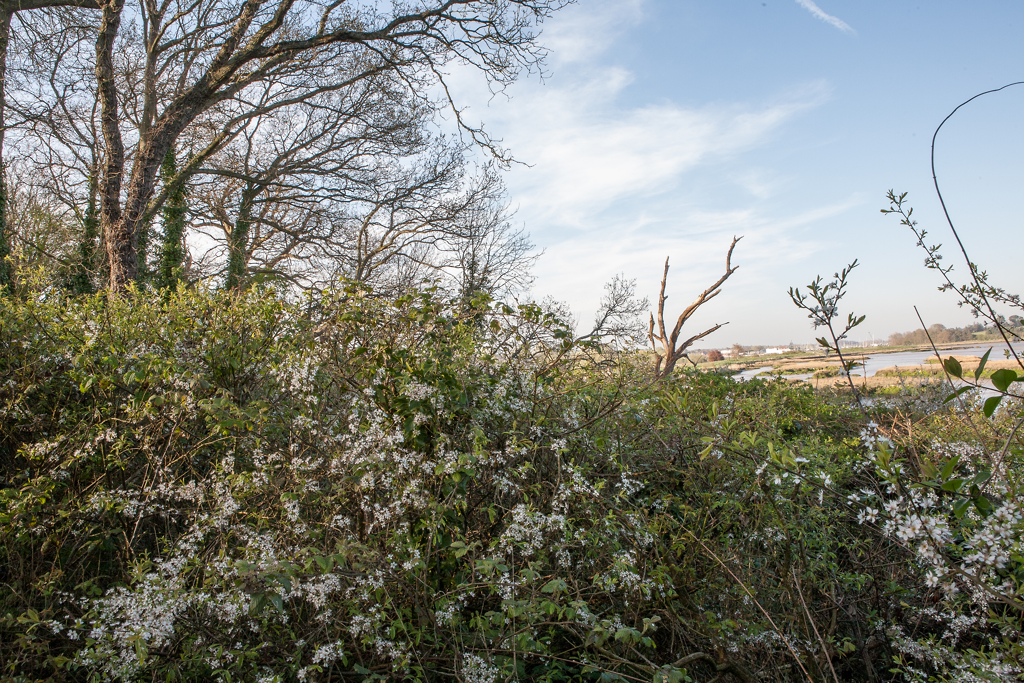
Posted April 17, 2017 08:14
![]() March 19, 2017 13:43
March 19, 2017 13:43
Wind-blown – and winded – I’m taking stock: broken trees, battered boat, one lost mooring line (now repaired), and knackered kidneys. The latest storm and its week-long wake matched the contents of my wooly-hatted head, as if to drive home a point:
Shit happens; sometimes you won't know which way is up. Deal with it.
I’m used to the river’s changeable, and ocassionally nasty moods, and felt little resentment about them until late one morning last week when, sitting in cloud-bound half-light, I tried to have a phone conversation with a kidney counselor in Norwich, as Odin rolled, bumped and crumped in the harbour, utterly at the mercy of billions of gallons of freezing, gale-whipped tide water.
“Sorry, can you say that again?” [CRASH] ” I asked at one point, the sound of Odin’s gangplank parting company with the deck, drowning the counselor out. “I’d like to live on the boat as long as my health allows”, I hear myself add, [CRACK] “... and come back after the operation ... when I’m strong enough.” [CRUNCH-CLATTER]. A pause while I watch the kitchen light swing from the ceiling, fat waves noisily slapping against the hull.
The plans we make, I think to myself. Next to stories, aren’t they all we have?
.......................
Nephrology, Fact Fans, is the science and therapeutic treatment of the renal glands (kidneys), and nephrologists are the medical experts of all things renal – while senior nephrology consultants are the frost-touched, blank-eyed overlords who preside at hospital clinics, talking (briefly) to the tops of patients’ heads (and sometimes bridge of the nose), while dreaming up ever-snappier titles for their latest publications on nasty wee-wee disorders.
Harsh? Meet one (It has unfortunately been my experience so far).
My current consultant in Suffolk (let’s call him Dr. Elsewhere) suggested I have a kidney transplant with all the empathy and warmth of a jaded, seen-it-all-before garage mechanic condemning a clapped-out gearbox – my gearbox to be precise, in my super-trusty, been-everywhere, super-precious, much-loved vehicle – the one that’s taken me everywhere, day-in and day-out (including on many of my best holidays), even giving me a place to hang out in the evenings. Since forever. I love this car. And he must know it. “Or scrap it, if you like ... and I’ll give you a tenner to take it off your hands,” I expected him to add.
The only thing missing was an oily Linda Lucardi calendar and an ashtray full of dog-ends.
As the room moved, and life’s blood drained into my Dr.Martins (now that was a doctor!), I sputtered a couple of feeble questions, and left.
The next two or three weeks were horrible. I was beside myself with rage and worry. I went to a ‘renal education day’ at the hospital, and immediately felt worse. I scanned the room – everyone was old; everybody else was a goner, practically, and a candidate for morbid pity. I was there ‘by mistake’. Wasn’t I? Then I saw my ageing, dog-tired face in the mirror. Nothing really prepares us for the loss of our safety, (or ignorance).
So, though I was being offered a lifeline, I regarded a transplant with horror and disgust. It was an affront somehow to who I’d been, who I thought I was, and who I wanted to be. A transplant felt like execution of established self; and a visceral end to physical integrity – and to cap it all, my family wouldn't merely have to watch proceedings: as donors, they’d need to take part. (Hadn’t I put them through enough over the years?)
I wondered if it could possibly be worth it.
Fuck it – I was so disappointed. My balloon had burst. The river dream was surely over – I could no longer pretend the blood-tests were anything other than a countdown to .... to what? Certainly to something ''bad' (and hard to imagine). And life on the boat suddenly seemed absurd, my happy isolation threatening. (The hand-to-mouth money situation was hopelessly dependent, too; and shameful and impossible. What had I been thinking?)
Where would I go from here – wherever 'here' was?
............................
For better or worse, nothing lasts. Storms pass. Internal weather breaks, and moves on. And in this, for me, there have been many helping hands.
Friends have called, staying on the floor, bringing firewood and their company. They've listened and advised, braving patiently, and compassionately, my ranting and incredulity.
Family, likewise. As potential donors, my mum, dad and brother have enjoyed the added frisson of elective surgery and giving up a shiney vital organ, though which (if any of them) will have to follow through, is not yet clear. For now, uncertainly has a new keenness for us; a sharpened edge, in our lives.
People I know less well have been significant too. Barney – a veteran of two transplants I met through a tissue-matching scientist friend of ours in Oxford (who knew I’d be sampling his wares one day!) – has given wise, funny and satisfyingly pithy advice on all things kidney-related, including the ins and outs of using other people’s. He is well, and lives his life fully. His example alone is almost enough. I have no intention of becoming a professional sickie.
Barney and I bonded, incidentally, finding out we shared the same senior renal consultant at the Churchill Hospital in Oxford. (We’ll call him Dr. Stone). This is a man of very few words who can hardly bare a conversation with his patients, and whose irritation during consultations manifests itself in a rapidly vibrating leg, which becomes a veritable blur if you question any aspect of treatment.
My feelings about Dr. Stone are complicated. Because, despite his apparent view of me as a walking (and unfortunately talking) case study (‘Hmmmm, vasculitis – quite rare!’), he did me no small favour two years ago, and directed the team that saved my life. (Stereotypes - hmmmm, quite common!)
.............................
Postscript: I’ve had to start dialysis, at Ipswich Hospital. I wanted to make it to transplant without this, obviously, but my kidneys had their own ideas. Offal. You can't trust it! Life goes on, but for a while it will revolve around three half-day sessions a week sitting in a very brightly lit room, in a padded chair, drinking tea, eating biscuits and watching my vital juices pump round the innards of a very expensive, bleeping one armed bandit..
I may take a book ....
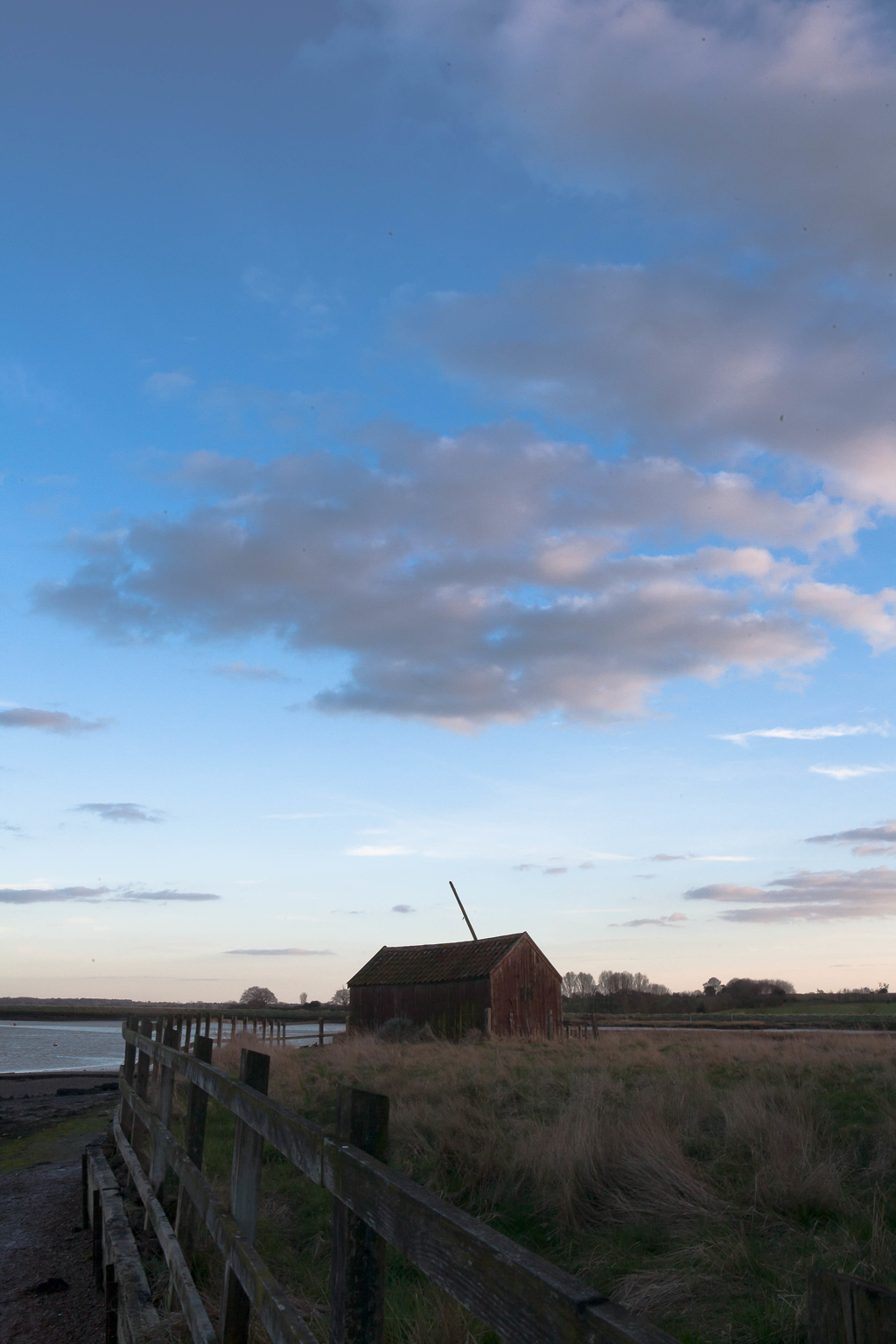
Posted March 19, 2017 13:43
![]() February 9, 2017 15:39
February 9, 2017 15:39
I just realised the post below - 'The Edge is Everything', for people who've not heard from me for a while - may come as a bit of a shock. Don't worry. I'm doing ok in the circumstances! The latest health news has not come out of the blue, and there's reason to be hopeful for a good outcome to an eventual op (which is surprisingly common now, believe it or not). I'm getting my head around it and it's the best way forward for me. I've no plans to leave the boat, though a period of recovery from any op would need to happen elsewhere. I'll keep you all posted. Mark x
Posted February 9, 2017 15:39
![]() February 8, 2017 12:50
February 8, 2017 12:50
The Edge is everything
I live on the edge. And know it or not, you do too.
My edge feels pretty literal. The small, early-closing town, the unmanned train station, the rickety quay, the tethered boat I call home, and the quietly draining marsh that fringes the riverbank and ripples with reeds, suggest to me a life of tenuous borders between built and not-built, land and water, river and estuary, earth and sea. The beat and barley fields of the coast, 8 miles away, are slowly falling into the waves.
This is a ‘between-world’, a blurred margin, and a place where unequals meet: our presence is conditional; nature patiently bides its time. What’s the rush?
But there’s another edge, too, and it has the glare of strip-lights and whiff of hospitals about it. I’ve spent a lot time visiting and occassionally staying in them – the meeting place between my mind and body became a battleground in my 30s; the seamless unease marring my days combined with physical inheritance over time, and eventually informed my immune system (the defender of all internal borders) that I was, perhaps, my own worst enemy.
What followed was tough.
First, went almost all energy. Years passed in fog. Then joints stiffened and swelled, and I gradually creaked to a halt. Eventually, with a lot of help, I rallied, and ‘got on with it’, but didn’t understand what was happening when, much later, I became unwell again. This time, my kidneys came under attack and one early morning I found myself in a hospital bed– almost too late – my body plugged into machines, relying for life (for a while at least) on the delicate, pulsing interface between the two. The blood in the tubes was surprisingly warm.
Kidneys? Who ever had problems with their kidneys – I’d never given them a thought. But now, only months after throwing everything into the air, moving across the country to live on the river – a new way of life I’ve seized with both hands, and all my heart – I, my family, and my doctors are looking for a new one to join and relieve my own fading organs. At first horrified, now less so, I listen to tales of success and re-birth. There are many.
Is my path being swallowed by the sea? Am I really more ‘at the edge’, than I ever was – than you are, reading now? Or is this utterly precise place our only home, where life has always happened, and I have no choice but to be?
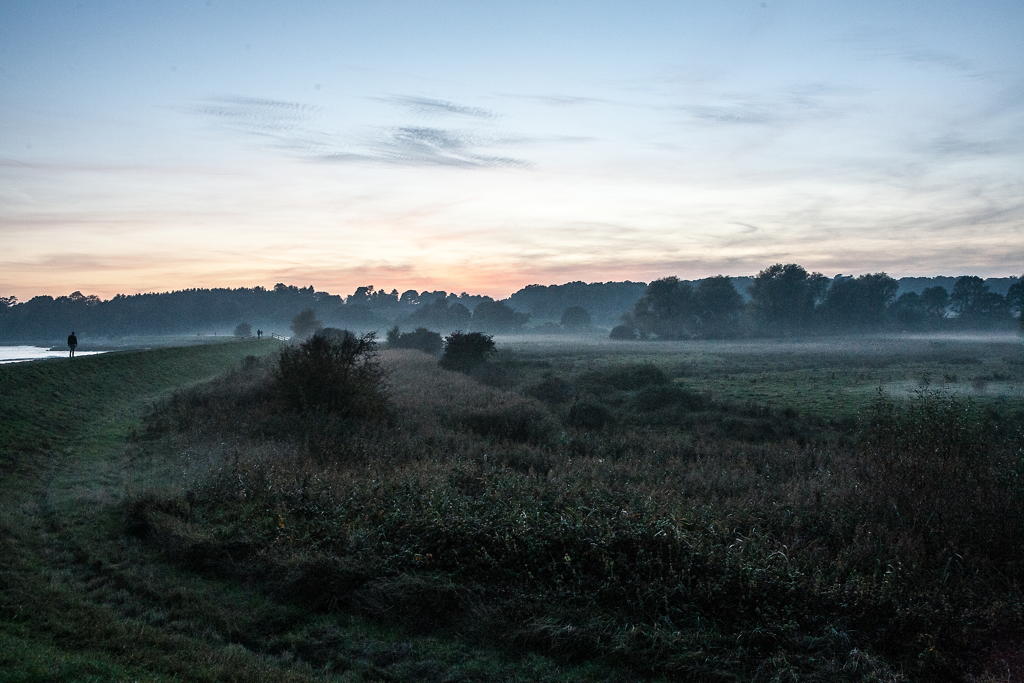
Posted February 8, 2017 12:50
![]() February 5, 2017 14:44
February 5, 2017 14:44
Curlew, Tern, Egret, Stint; Cormorant, Sanderling, Snipe. The whine and whistle of the wind has rich competition here – the chatter, beep, squawk and trill of the ever-present birds. They’re everywhere.
They own the place. When I first arrived, I could name none of them, beyond ‘duck’, and ‘another duck’, and their cries were the noise of a crowd, anonymous, raucous, indistinguishable. One bundle of feathers was much the same as the next. But I was surrounded, and my ignorance felt like a barrier to belonging.
Was this a weird disease of the city? I’ve heard some children make no connection between milk and cows. And that the same goes for many country kids too. The inability and total lack of interest in recognising and placing other creatures displaces us too.
So I bought two illustrated bird guides. And at first, they only further niggled my sense of woeful, townie ignorance.
This was preposterous. How could nature come up with all this? Where did all these lovely, strange, time-less names come from? What makes a Godwit a Godwit, and a Shank a Shank? Who decided? Has a Lapwing always been more ‘lappy’ or ‘wingy’ than anything else? And who, any more, knows, or minds, what a Temminck’s Stint is?
Then I noticed something, and soon saw it everywhere. And names mattered.
The estuary is a rich, self-replenishing eat-all-you-can-find cold / wet buffet, and with each receding tide great bickering crowds of avian hustlers gather in the shallows to scan the water, to pick, stir, and probe at the mud. A beady eyed, intricately mannered mass dinner dance ensues; the full a la carte menu of worms and mollusks, snails, small fry and weed sought, winkled and hoovered in a frenetic hour or two of spikey competition – sustenance and survival decided by territory and pecking order, timing and luck.
And, to all of this, each member of every single species brings its own numbered dinner ticket - in the utterly distinctive length and shape of its beak.
So while the largest of our wading birds, the Curlew (see p105, RSPB Pocket Guide to British Birds), with it’s stunningly long, downward-curved bill, may find itself sharing a freshly exposed beach (or bag of crisps) with a dainty, small-beaked Little Gull (p119), its place in the grand scheme of things will ultimately be shaped by the greater depth to which it can plunge its mouth parts for food. Whole sections of the menu dwell only in this strata.
So, if I could ask a Curlew, “why are you here, and doing that?”, I like to think that, looking at me sideways, and suppressing a snigger, it would answer “well, my beak is approximately 20 cm long, slender, and as you’ll notice, shaped rather like a scimitar – all the better for finding and nobbling the most reclusive worms. What are you doing here?”
I'm sure I'd come up with something.
There’s a place for us all.
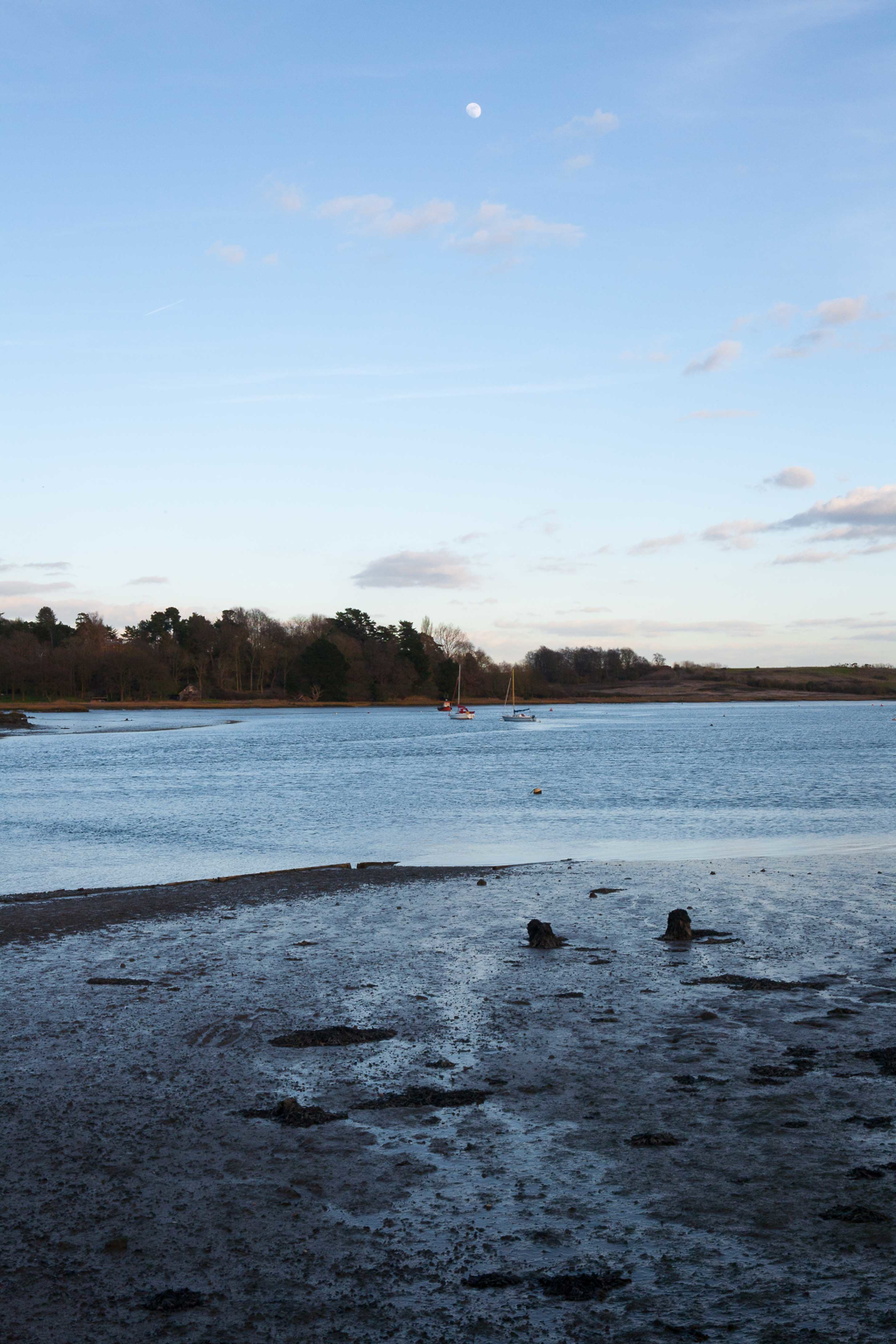
Posted February 5, 2017 14:44
![]() February 5, 2017 14:28
February 5, 2017 14:28
From my window I can sometimes see the sea. And sometimes I can’t.
Twice a day the ocean swells the river, in agreement with the moon, and twice a day I watch the water rise up my garden, come to the door, and stay a good while, and do what it does, so totally.
Before folding back, like a drawn breath.
We are left skewed and undone –like toys after play, at bath time.
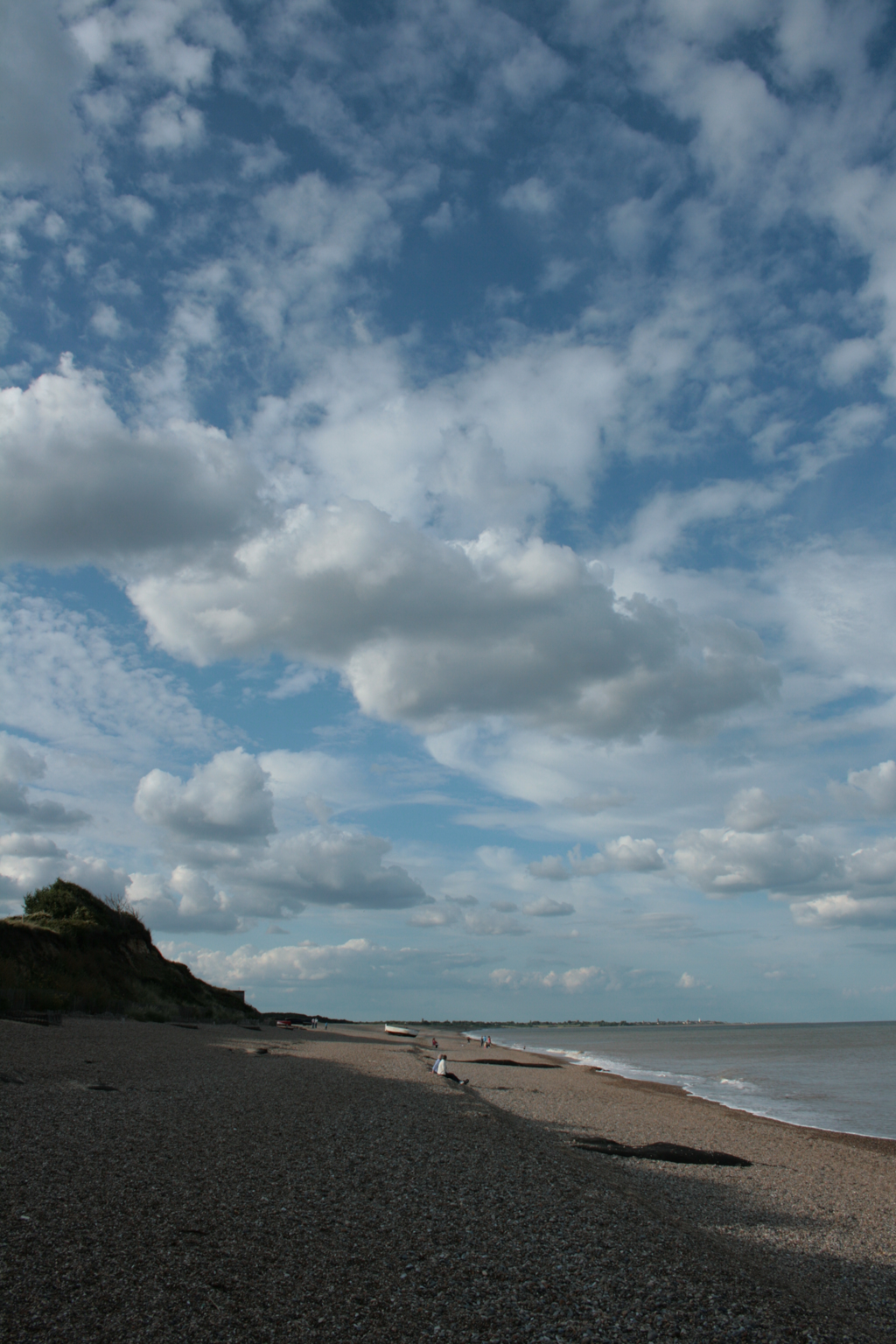
Posted February 5, 2017 14:28
![]() February 2, 2017 13:08
February 2, 2017 13:08
Friday the 13th. Very funny.
A dense blanket of gun-grey sky. It’s snowing, sideways. Wind scythes across the river; rigging in the boatyard tinkling, clickety-click, whining round and through the boat – ‘Olive’ is whistling like Shackleton’s beach hut. More penguin anyone? Perhaps no surprise, few birds today.
The radio is delivering a ‘Severe Weather Warning’. Gale-force Northwesterly winds up to 70 miles mph are forecast along the Norfolk coast, and could produce big tides further south. A storm surge is expected in the estuary. Evacuation is urged in some exposed seaside towns, Suffolk and Essex.
As quay and jetty are due to flood, I’ve decided to stay put and ride it out (as have most of the neighbours). It’s a boat, after all, and I’m better off on it, than off it.
Or that’s the theory.
Hopefully my lines will hold.
Where can I buy some wellies? Is it too late to grow a beard?
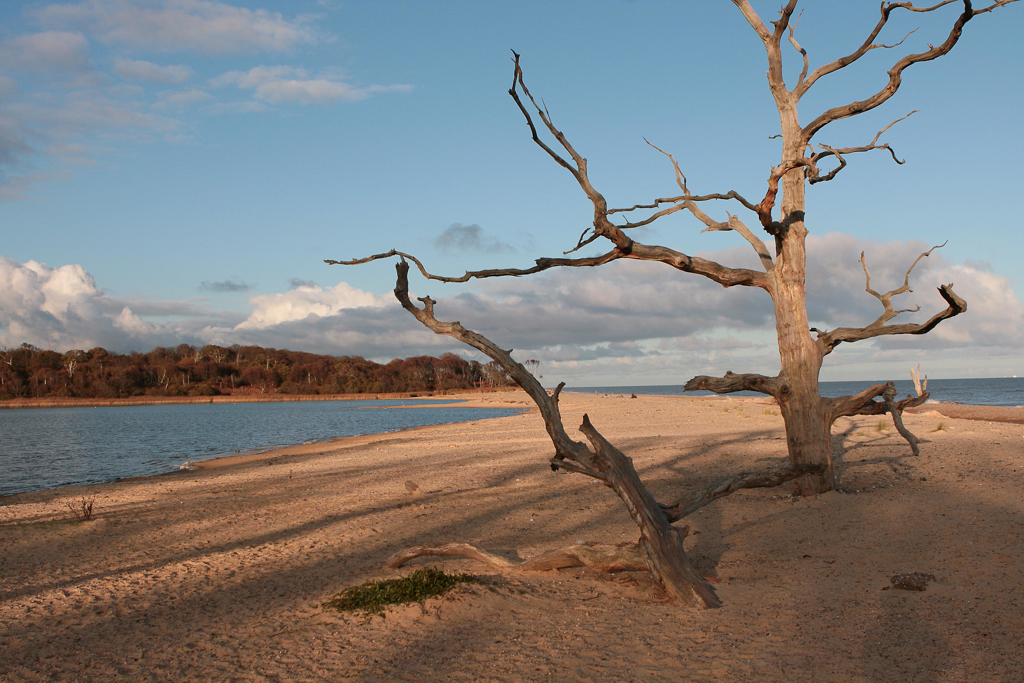
Posted February 2, 2017 13:08
![]() February 2, 2017 13:02
February 2, 2017 13:02
I wake to frost on board ‘Olive’. A night of hard, bright stars and crushed crystal air has passed, and I’m watching steam rise from the old jetty. An unexpected blast of brilliant winter sun liberates the furry coat of ice.
This morning it’s a different world. Living on the Deben river – on these tides and under these skies, at this unhurried edge of an east coast estuary town, our concerns seem to shift and roll with the turning Earth. Our amiable, shambling community is harnessed to weather and moon.
IA quaint way of seeing things? Or the original view of time?
Life here is undoubtedly basic and we’re scoured blithely, even cheerfully, by the elements. So, talk among us ‘river rats’ usually springs from what those elements are doing, or are about to do. And today, banter is mostly around how to keep our boats warm, and avoid quaintly freezing to death.
Looking among us describing heating arrangements, I notice some of my neighbours have doubled in girth. And catching my reflection later, I realise I’m giving them a good run for their money.
This is because we’re wearing our clothes. Or, to be more accurate, we’re wearing all of our clothes, all at once (and in some cases, I‘d swear, in no particular order).
It goes for everybody – no exceptions; from hardened, sun-burnished boaties, to newbie urban escapees like me. This costume marks the tribe, and makes sense. After a few rapidly cooling months here – in more than ones fair share of wind, rain and chill (and denied wardrobes of conventional dimensions) we just decide to put everything on. We actually go to the shops like this – dressed for a Force 8 with an optional storm-tossed night overboard.
It’s certainly clear we’re driven by similar simple needs. And that we could, in fact, be evolving into vaguely the same person.
And that person’s suffering from a mild emotional disturbance.
Log envy.
I have to say wood has never played a particularly big part in my life. I admit to admiring a good door, or an attractive skirting board, but recently having left houses and central heating behind (voluntarily, mostly), I felt the first true bite of winter and instantly morphed into a ravenous log fancier. It’s not complicated. My drafty home sits in freezing water. I am cold. And now, I enjoy nothing more than discussing the merits of a well-seasoned burn, enthusiastically comparing notes on kindling, and frankly, generally gazing at trees. (The wood versus coal debate, incidentally, is never, ever ending).
So logs, I discover, are the river rats’ currency of winter. And this year, log envy kicked in around the 17th of October. Gone was the hazy, rippling light and egg yolk sky of Indian summer. Suddenly cool beer was out, and boiling chicken soup was in. And the wood burning stove became the cast iron heart of the universe.
‘Olive’, my first ever floating home is, bless her – above the water line at least, ‘a bit of a crate’, and leaks heat almost as fast as I can generate it. (Her bottom half is, thankfully, leak-free). But it’s turned me into a ship’s stoker. So, where I’d once flick a switch to get warm, I now have to get dirty first, and spend time and energy in ways I’d never dreamed of to do it – hearth cleaning, ash dumping, fire setting, fuel carrying, log-splitting, coal shoveling, soot scrubbing, splinter-removing, minor burns-tending, coughing, hand washing, fuel-hunting, and general, all-waking hours fire-related jiggery-pokery.
It’s grubby, constant, and arduous. So why wouldn’t I change a thing?
Posted February 2, 2017 13:02
![]() February 2, 2017 08:41
February 2, 2017 08:41
I’ve been here four days. I’m sitting in the sun on the viewing deck, the rays are searching my bones. The boat, I’m aware, is alive, like her estuary home.
‘Olive’s lines and gangplank creak as the tide rises, the in-flow lifting her almost 8 feet from the river floor. Her squat bulk strains at the leash, eager as a dog to meet the waters. A steady rhythmic bobbing, and subtle roll. I’m cradled and rocked in time to the movement of the Deben, and the occasional swipe of the wind.
Bellow deck, later, the light shifts and flickers, kindles and fails, only to flame again. The spectacle of the weather looms large in her big, flat windows.
I lie on the sofa, looking up, and through the glass. ‘Olive’s cinema is always open. An unfamiliar feeling.
I realise I’m as happy as a clam.
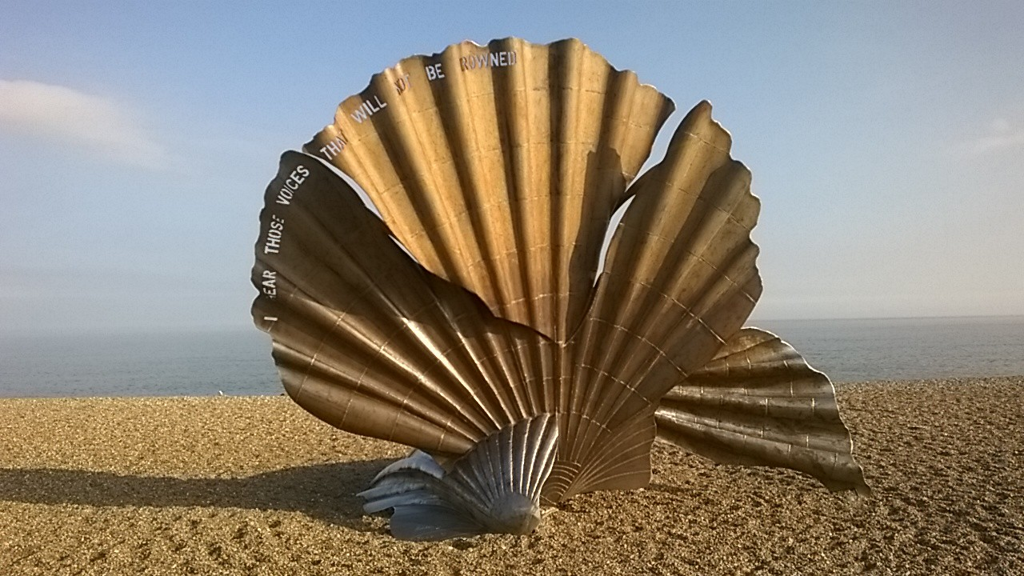
Posted February 2, 2017 08:41
![]() February 2, 2017 08:08
February 2, 2017 08:08
Early days of sun. Everything is drenched in light and for now, I live the dream.
Alongside the headiness runs deep unease. It’s one of those dreams where nothing adds up, and your arms and legs are made of jelly. A benign disorientation reigns. Why is everything moving? What are those strange noises? Where the hell did I put my toilet keys / glasses / half-eaten sandwich / trousers?
And the boat moves a lot sometimes, which, quite unreasonably, comes as a surprise. My head swims. After the first few days of swilling around on ‘Odin' I attempted a trip to the Co-op and found myself weaving down the pavement like a committed White Lightening drinker.
And then, of course nothing works as it does in a house, which is vexing and tiring – welcome to the learning curve; but above all, there’s so little room. Going about my daily business, I might as well be organising a conference in a phone box. Just getting from one end of the boat to another without cracking a rib or altering the shape of my nose is a challenge – and when I get there, it’s quite easy to forget why I’d bothered. Where does everything go? A trip to the bedroom, amongst my half-unpacked belongings is a befuddling obstacle course. And sometimes only an exquisitely lowly placed door jam on the forehead offers the Zen wake-up bell required.
The doll’s house scale of things makes me feel like a giant, too. I begin to doubt my size, like Alice, and though nothing really lessens the problems of tallness, I’ve found altering my profile and adopting specific, task-related postures makes things easier and lessens the chances of a neck hernia.
These postures I’ve named.
Doing the washing up, for example, I find it’s advisable to pull a quick ‘Henry the Eighth’ and stand at the sink, legs akimbo, in full Power Pose. (Try youtube and Amy Cuddy on the other benefits of this. But that’s another, far more interesting story.) Not that Henry did a lot of washing up. It does work though – slightly reducing ones height, and I’m enjoying freeing the top of my head from the subtle downward pressure of the ceiling.
The Gardener. Here’s a question. Why crane your neck or bow your back getting through doorways, when you can walk around permanently bent at the waist? Doing so helps no end if you have to go through a door to look in a lowly placed cupboard in the next room, for example. No energy-sapping bending and righting up; become a right angle and let your knees take the strain. And consider taking up gardening.
The Limbo-dancer. Frankly can’t be bothered to assume a full ‘Gardener’, when, for instance, using the wardrobe-sized loo? The Limbo – that old shimmy favoured at slightly racy 1950s parlour parties – may be the answer. And it makes a nice change bending the other way. It certainly adds a dash of spice to basically ‘not hitting your head’.
Showering on ‘Olive’ requires focus, and a very strong desire to get clean. As the shower head delivers its drizzle from a height of around 5 and a half feet, one is faced with a choice: hunch or squat. So I bought a low stool, accidentally creating The Cossack – which, incidentally gives you a very low centre of gravity and raised knees. A willingness to get into the spirit here helps; don’t be surprised if you start humming ‘Kah-ling-kakaling, Kakaling’ as you soap up.
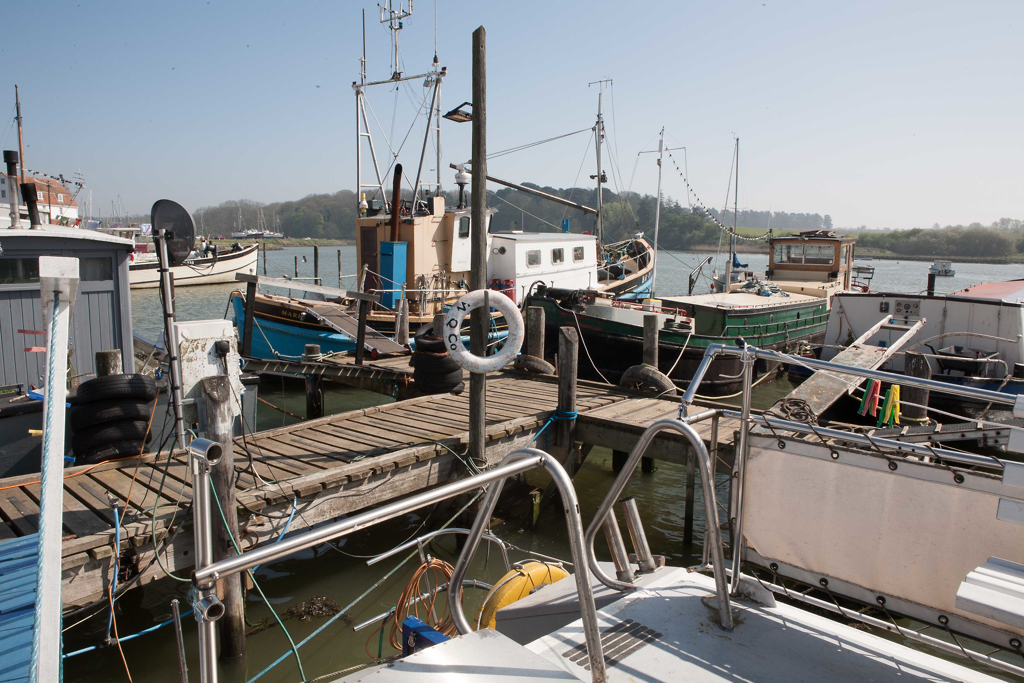
Posted February 2, 2017 08:08
![]() January 29, 2017 09:00
January 29, 2017 09:00
I am delivered here on a wave of warmth, riding up front in a box-jammed Ford Transit driven by a kind, smiley, barn door-shaped Algerian, called, vaguely surprisingly, Andy.
And I'm fried.
After months of planning and packing – or, more accurately, shedding possessions, and worn out by long farewells and no small amount of worry, I am definitely finally here, sweating on the creaking jetty, under the hot summer sky, over a hundred miles from ‘home’, feeling like a one-man travelling circus, staring at my paltry, residual belongings, and ‘Olive’, the retired 35-foot sightseeing cruiser that is to be my new residence.
I’m considering quite how much I’m about to screw up my life. After all, I’m leaving my adopted hometown of 30 years, single, broke, and in less than rude health. I’m abandoning the place I lived as a student, where I got my first proper job, where I fell in and out of love, got unwell, soldiered on, had fun, got unwell again, largely recovered, played in a samba band, stopped playing in a samba band, left, came back, grew up late, and accidentally spent most of my days. Far away will be the many friends who sustained me; the grubby, frenetic streets I know better than myself. My backstory. My ghosts. My Oxford.
Andy With-the-Van, on the other hand, is a survivor of civil war, 12 years as an army boxer, and a life-changing journey of migration. He’s made of his own stuff. And he’s so enthusiastic about my adventure, not joining in now would be churlish.
Lugging the first of my bags across the gangplank and into the boat, he’s beaming.
“Oh, It’s beautiful, Mark! It’s beautiful!!
......................
The quay comes straight from the double-spread picture pages of Richard Scary’s ‘Busy World’ – there’s so much for the eye, the other senses briefly give up.
Pan-tiled workshops and wonky sheds; masts, aerials and rigging; coils of rope, mooring lines and pipes; used tires, fat posts, rusty fittings, seaweed; old wood; an ancient dock crane; dog-walkers, workmen, boat-dwellers, and birds (everywhere) and as far as the eye can see – sky, and rich, rich, shining estuary mud. And the trawlers, lowland barges, cruisers, yachts, ex-navy launches, patrol boats, narrow boats, tubs, conversion projects and flaking hulks that, perhaps, 40 people are calling home.
The place is alive with wading birds and their small, dainty movements; snipe and sandpiper, shrill, cut the air.
Welcome to our world.
“Olive’, for all her merits, is not one of the prettiest vessels. Forget romance, and surrender hope of wood, sails, or fancy paint job. Think of the boat Martin Sheen took up-river to hunt and kill Colonel Kurtz in ‘Apocalypse Now’, minus the armoury – and cross it with a scaled-down, 1970s Sealink ferry. And you’ll have an idea.
A converted riverboat and coast-hugger, ‘Olive’s built in steel and painted a resolute North Atlantic grey. Her raked profile makes her look faintly aggressive – an impression softened, happily, by big picture windows, and a viewing deck with benches running half her length. Inside, the mood lightens. Around 12 feet wide and 30 long, her cabin is tongue-and-groove paneled and bright, cheerfully scruffy and eccentric, and provides a good living space for one, and could for two, and is equipped with everything you need. (This includes, prominently, a steering wheel in the living room).
Or equipped with almost everything. Greg, the owner (I’m renting in my first step off land) just informs me I’ll have to use the toilets on the quay ‘for number 2s’, as ‘Olive’s loo effectively has no tank - she flushes directly into the big wide world. Which, right now, happens to be a popular public place.
Christ, really? Will this be a deal breaker? None of the boats are allowed to empty their bogs into the river (though the estuary tides handily flush the mud-dock twice every 24 hours). Given the waterfront’s status as a heritage site and nature reserve – with its abundant, omni-present wildlife and year-round binnocular-weildng tourists, it’s fair enough. Probably.
But still.
Posted January 29, 2017 09:00
In the summer of 2016, Mark Tunnicliffe threw his life to the wind and moved 100 miles to a boat on the Deben estuary in Suffolk. He now collects buckets, and shouts at birds. Can his dreams stay afloat?
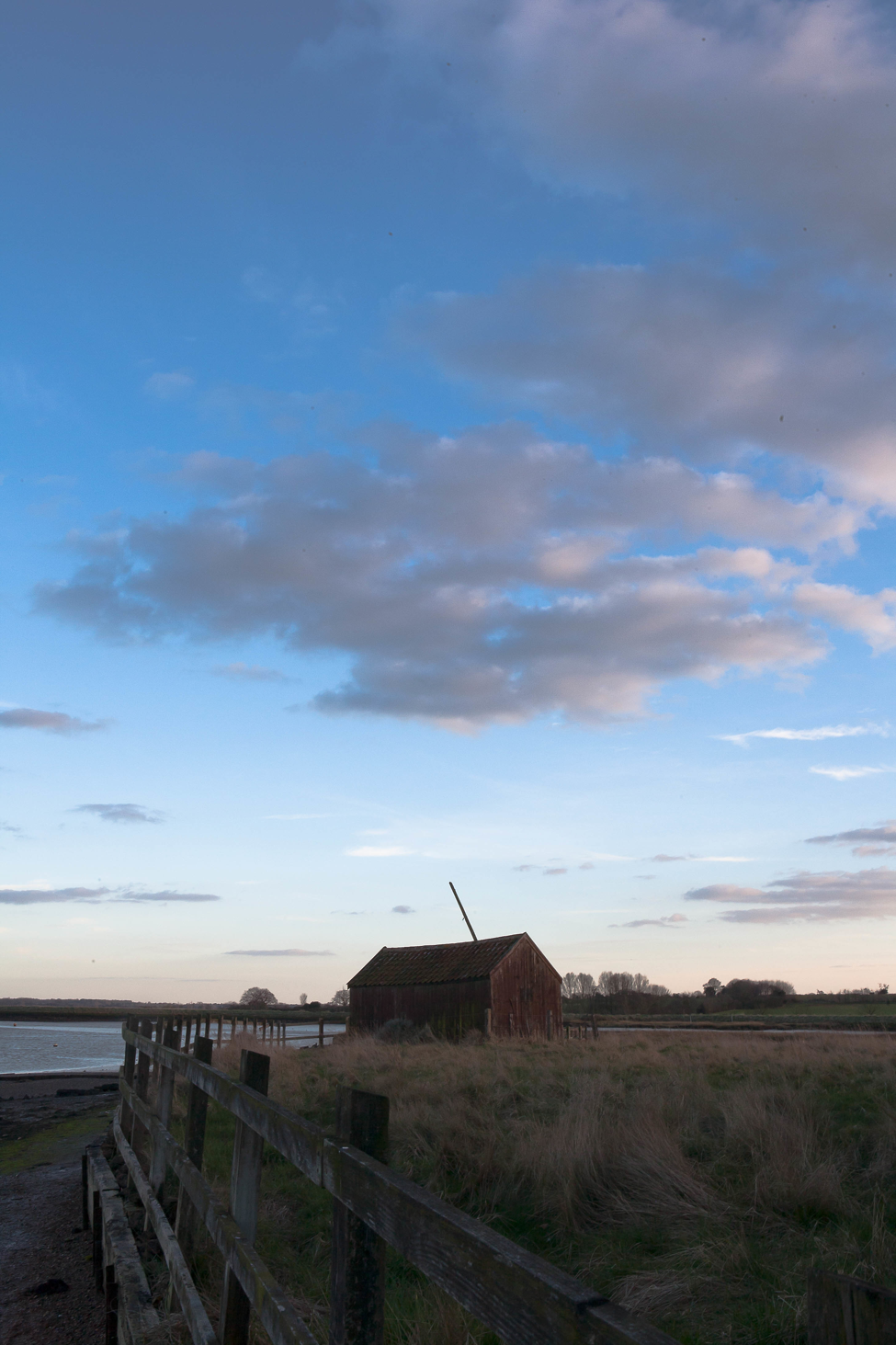
Recent Blog Entries
- Speculative - for Guardian Country Diary
- A Postcard from the Waiting Room
- 14 April, 2017 – Taxi to Transylvania
- March 18, 2017 - Storms pass; the weather breaks
- Some reassurance ....
Tags
Archive